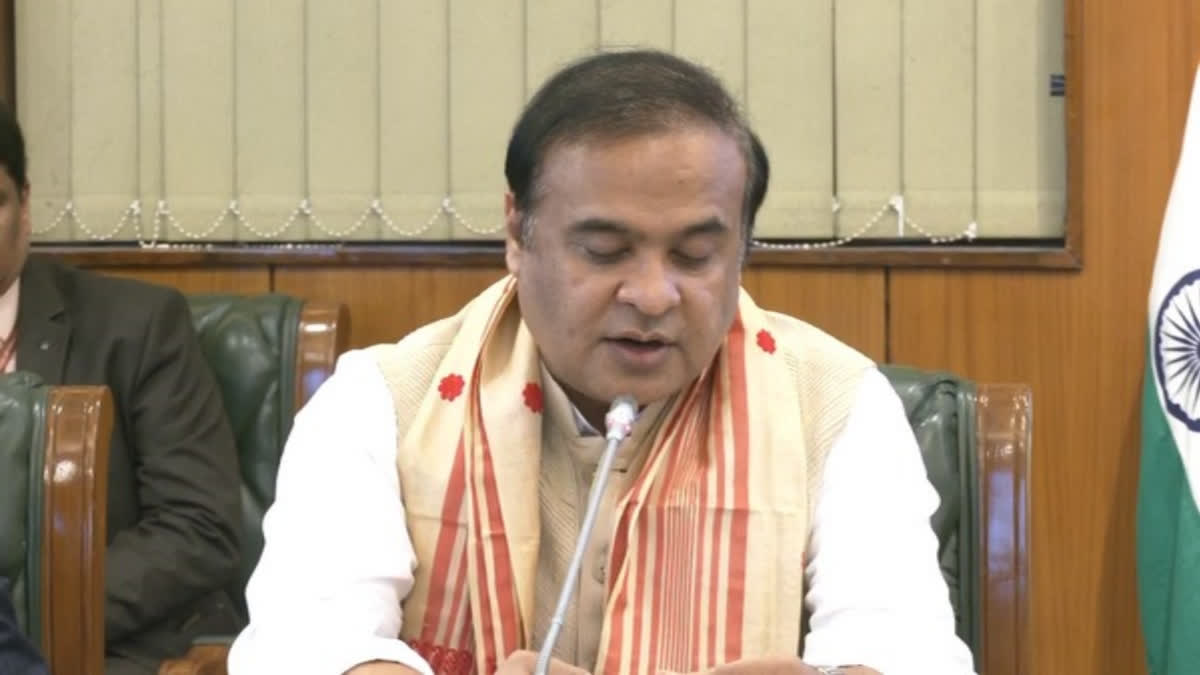New Delhi: Immediately after signing the peace accord with the pro-talk faction of the United Liberation Front of Asom (ULFA), the BJP governments both in New Delhi and Dispur tried to hard sell the deal as a breakthrough in establishing permanent peace in the state by addressing core identity issues that beset the state for years and led to the formation of the ULFA on April 7, 1979.
Both the Home Minister Amit Shah and Assam Chief Minister Himanta Biswa Sarma described the agreement as “historic.” They said the agreement would help establish permanent peace in the state, a claim that has few takers. “Ever since the Modi government came to power, we have been earnestly trying to bring peace and development in the Northeast,” said Shah.
The Centre on Friday signed a peace agreement with the pro-talk faction of ULFA capping over a decade-long negotiation to end the insurgency in Assam. The peace process began during the Congress regime in 2012. As per the agreement, the armed group will be dismantled within a month with the surrendering of arms to join the mainstream.
The ULFA (Independent) faction led by Paresh Baruah is still waging an armed insurgency, demanding “sovereignty.” The group has, of late, started flexing muscle much to the concern of the security establishment of the state. In recent times, ULFA-I carried out three incidents of bomb blasts in Assam. A permanent peace would be a far cry until Baruah and his faction come over ground.
The memorandum of settlement signed with a 16-member Ulfa pro-talk delegation headed by its chairman Arabinda Rajkhowa may now put Baruah under pressure to follow suit. “This agreement is a step toward bringing Paresh Baruah to the negotiating table,” Chief Minister Sarma said.
To put pressure on Baruah to come to the mainstream, the peace accord needed to be implemented in letter and spirit, and should fulfil the aspirations of the people that forced much misguided youth to take up guns.
“Our government will ensure that the accord will be fulfilled to the point of commas and full stops in a time-bound manner. A committee will be formed to ensure that,” Shah assured. One of the core demands of the outfit to grant ST status to the state’s six communities— Moran, Muttock, Tai-Ahom, Koch-Rajbongshi, Sootea, and Tea Tribes — has not been resolved even in this peace deal. These communities are listed as OBCs in the state.
The granting of the ST status was also a poll promise of the BJP. Sarma said the demand would be taken up separately.
Although there is no clarity on providing political safeguards to the indigenous communities, Ulfa leader Sashadhar Choudhary said, “Benefit for indigenous communities will take place through delimitation (by reserving 94 seats)." The Chief Minister also claimed that the recent delimitation exercise carried out by the Election Commission of India in the state has already safeguarded the interest of the indigenous communities.
This peace deal has a provision that ensures that even the same safeguard would remain unchanged by following the same methodology even in future delimitation processes, Sarma said. The deal further stressed the need to review the NRC without delving into details on the issue as it is a sub-judice matter, the chief minister said after inking of the peace deal.
The agreement is seen as a major political boost for the BJP as the aging top guns of the Ulfa that constitutes the pro-talk faction still have some pockets of support in Upper Assam, the administrative division comprising 10 districts. The region of late is witnessing a churn following the delimitation of Lok Sabha and assembly constituencies in the state to the extent of an influential Tai-Ahom organisation reviving an old demand for a separate Ahom state carving out the upper, central, and northern parts of the present-day Assam.
The Ahom-land demand, which was first raised way back in 1967, got fresh momentum after the ECI’s proposed delimitation draft, published in June, allegedly reduced Tai-Ahom-dominated assembly seats from nine to three.
To add to the BJP’s discomfort in the Ahom heartland of Upper Assam, all the top opposition leaders of the state are from the region. The Congress troika of PCC president Bhupen Borah, CLP leader Debabrata Saikia (son of former chief minister Hiteswar Saikia) and the party’s deputy leader in the Lok Sabha Gaurav Gogoi (son of another former chief minister Tarun Gogoi), Assam Jaitya Parishad chief Lurinjyoti Gogoi and Raaijor Dal president Akhil Gogoi all are from the Upper Assam.
The BJP’s tallest leader from the region Sarbananda Sonowal has been shunted out from the state to the Centre. The presence of several civil society groups representing various ethnic communities, including of Tai Ahom, in the signing agreement was however a sign of relief for the BJP.



